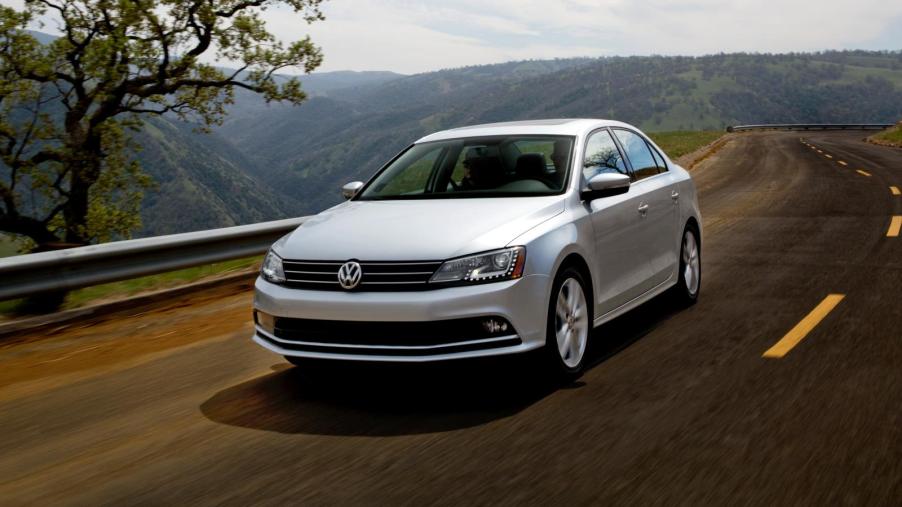
2 Times Automakers Were Caught Lying to Customers
Buying a vehicle has never been cheap. Because of this, buyers expect transparency from automakers. This means people want to know that the cars they’re buying grant what the company promised. Unfortunately, there have been several car scams where companies have lied to customers. Some are more recent, but other situations happened decades ago. One is the VW emissions scandal that impacts the 2015 Volkswagen Jetta and other models. The other has to do with Ford and Firestone.
The Ford and Firestone controversy still lives
People who were old enough in the 1990s and early 2000s will remember the Ford and Firestone scandal. It was on the news all the time and caused a high level of distrust for both companies. Basically, Ford equipped its then-new SUV, the Explorer, with Firestone tires as the companies had been long-time partners.

Unfortunately, once the Ford Explorer was finally on the road, there was a high volume of tire failures. In particular, the tires suffered from thread separation, and the ATX, ATX II, and Wilderness tires from Firestone were the main culprits. However, the most significant part of the story is that the high volume of tire failures caused thousands of accidents and over 250 deaths.
Firestone was at fault. In 2000, Firestone recalled a whopping 6.5 million tires, and Ford later spent about $13 billion replacing the ones not included in the recall. Then, Firestone paid Ford $250 million as a result of the scandal. However, we now know both companies had early knowledge of the issues but still decided to move forward with the tires.
VW emissions scandal
The VW emissions scandal is another time when an automaker blatantly lied to customers. Sometimes called dieselgate or emissionsgate, this scandal happened in 2015 and involved Volkswagen using software that allowed its diesel vehicles to switch between two modes. While in test modes, the Volkswagen diesel vehicles would comply with federal emission standards.
According to the Engineering Institute of Technology, the VW emissions scandal became widespread news when three college students discovered that normal mode disabled the emissions control systems. This mode essentially changed the fuel pressure and injection timing. Because of the change, some 2.0-liter diesel vehicles were giving off up to 40 times more nitrogen oxide. Some 3.0-liter engines were also impacted.
However, this separate mode also allowed the cars to produce more power and use less fuel. This impacted a staggering 475,000 Volkswagen, Audi, and Porsche models. The 2015 Volkswagen Jetta is among the most impacted.
So, why did Volkswagen do this? In a nutshell, it comes down to money, as these things always do. Volkswagen did this because it knew compliance with the standards would increase operating costs while also hurting sales due to lower performance and increased fuel consumption.
As a result of the VW emissions scandal, the automaker either bought back the impacted vehicles or offered the owners monetary compensation. By 2016, about three-quarters of the impacted owners had started the process of having the automaker buy back their cars. Buyers could also elect to have the issue fixed. Volkswagen also vowed not to produce diesel vehicles in the U.S. after the VW emissions scandal.



